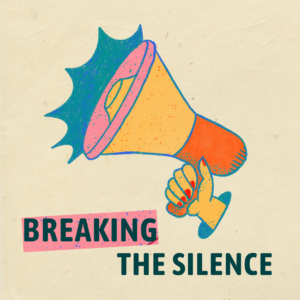Have you ever realized that you or someone you know could benefit from mental health support, but you’re not sure where to turn? If so, you’re not alone. Everyone has mental health. However, in some places, cultures, communities, and languages, it is not getting the attention it deserves.
Mariana Ogarrio, an Advisory Board member for Born This Way Foundation and a native Spanish-speaker, explains that when it comes to mental health in Mexico, “It’s disheartening to note the limited education and understanding of mental illnesses.” She explains how she had to relocate to a residential treatment center in Orange County, California, due to the limited resources in Mexico.
“Returning to Mexico after treatment, I confronted the harsh reality that such resources were scarce in my country and language. This disrupted my routine, posing a threat to my recovery,” she says. “Resorting to Zoom for American meetings, though appreciated, underscored the absence of in-person meetings in Mexico, which could have significantly enhanced my experience and support network.”
While the U.S. was able to provide Mariana with more mental health support than Mexico, it still has a huge need for improvement. In a study from 2022 with Dr. Pro and his colleagues, the unfortunate decline in mental health facilities that offer services in Spanish is observed. The study finds that between 2014 and 2019, the proportion of facilities that offer services in Spanish decreased in 44 states. Additionally, the Hispanic population, referring to any Spanish-speakers and people relating to Spanish-speaking countries, increased by 5.2 million people during this time, with the sharpest drops in Spanish resources occurring in states with the fastest-growing Hispanic populations. With an ever-growing Spanish-speaking population in the United States, equity in mental health outcomes needs continuous attention.
“Once we acknowledge that mental illnesses affect everyone, regardless of age, gender, nationality, or any other factor, it becomes crystal clear why mental health representation should be diverse in languages,” Mariana says.
According to a 2021 Mood Disorder Survey, among those with mood disorders, Asian and Hispanic people were more likely to report their mental health as “poor” compared to Black Americans and White Americans, and a significantly higher number of Hispanic people (70%) reported there was a time they wanted mental health treatment but did not receive it. Essentially, where help is needed the most, it is also lacking the most. In general, people of color also report greater difficulty opening up to others about their mood disorder compared to white people, with Hispanic people (78%) reporting the greatest difficulty. This gap is likely due to insufficient resources for encouraging mental health discussion in Spanish and a lack of bilingual mental health professionals. Language accessibility is so important to having culturally responsive health care services, so we must make constant efforts to strengthen these services in a way that encourages access and discussion for everyone. Mariana shares that “the availability of mental health support in Spanish not only overcomes language barriers but also acknowledges cultural subtleties, reflecting a changing landscape of awareness and acceptance, and ultimately creating a more united and compassionate community.”
Mariana is working hard to address this issue: “Having walked the challenging path of recovery, I’ve chosen not to wait for change, but to take action myself. I’m excited to announce the launch of FUNDAMENTAL, a nationwide foundation dedicated to destigmatizing mental illnesses through social education and honest conversations, as well as providing scholarships for therapy and medication. Though it’s in the early stages, I’m confident that FUNDAMENTAL will make a significant impact, starting nationally and expanding globally in the ongoing struggle with mental health. Stay tuned for more details about the project in the coming months through various media outlets!”
Born This Way Foundation continues to expand its mental health resources as well, notably offering the Be There Certificate, a self-paced online course that aims to provide youth with the knowledge, skills, and confidence they need to safely support anyone who may be struggling with their mental health. Similar to Mariana’s initiatives, Born This Way Foundation has also set a goal to make its programs as universally accessible as possible. For this reason, the Be There Certificate is completely free and available in English, French, and Spanish.
Mariana has also made tremendous efforts to speak out on the importance of mental health representation in the media. She points out that the universality of mental health issues further emphasizes the global need for diverse language representation in media, so that different audiences gain attention. She adds that as individuals from diverse walks of life, belief systems, cultural backgrounds, and professional capacities share their insights on prominent media platforms, they have the potential to resonate with the entire world, spreading messages of love and acceptance, and making a global impact. For Mariana’s full take on media representation of mental health, read her article on Channel Kindness: How Movies Lit My Path To Recovery.
Not only does mental health representation on varying platforms and in varying languages create an individual sense of validation, but it also works to diminish the stigma surrounding mental health in many cultures.
“I find solace and validation in Spanish-based resources, which fosters a sense of belonging,” Mariana says. “This inclusivity promotes open dialogues, helping to dismantle stereotypes and usher in a positive transformation towards a more supportive society.”





















